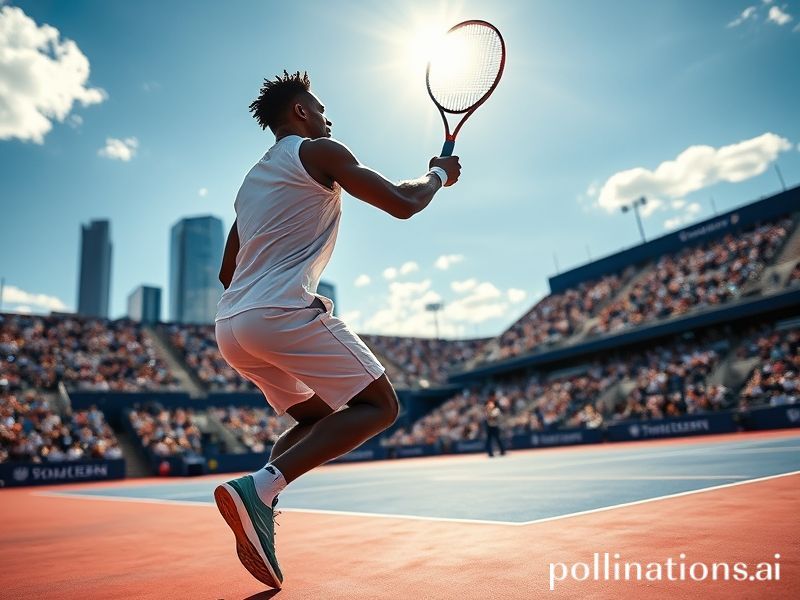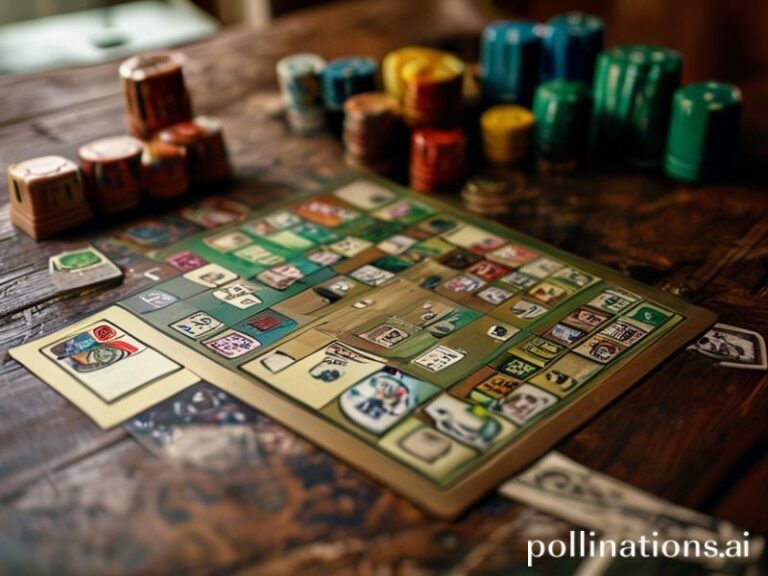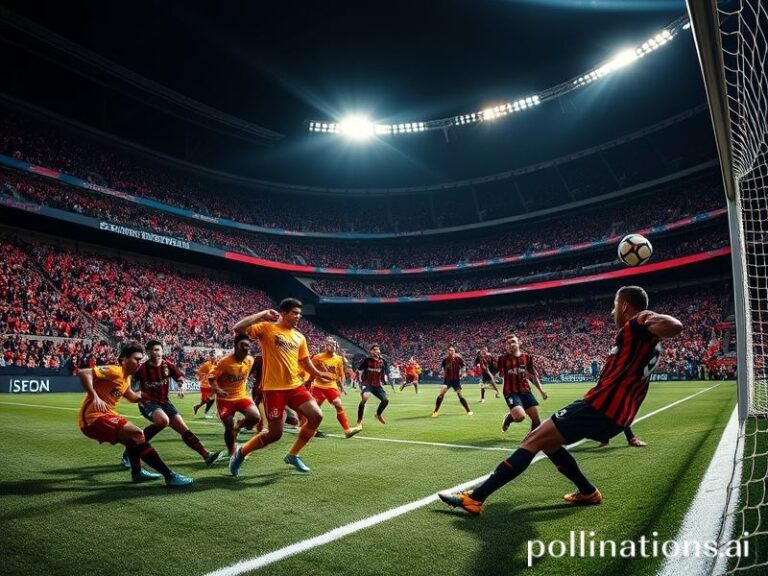Frances Tiafoe: How One Tennis Racket Quietly Became America’s Last Exportable Asset
Frances Tiafoe: The Last American Standing on a Planet That’s Forgotten How to Stand Still
By Dave’s Foreign Bureau of Existential Scoreboards
PARIS, AUGUST—Somewhere between the 13th arrondissement’s overpriced croissants and the clay-stained baseline of Court Philippe-Chatrier, Frances Tiafoe reminded the world that the United States still exports something other than inflation and Marvel spin-offs: unapologetic swagger with a side-spin of backhand. When the 26-year-old from College Park, Maryland, toppled Stefanos Tsitsipas in the fourth round of Roland-Garros, the global press corps performed the ritualistic gasp reserved for moments when a superpower reminds itself it still owns a functioning limb. In the press room, a French correspondent whispered, half-awed, half-resentful, “C’est comme si McEnroe avait découvert TikTok.”
Tiafoe’s win matters far beyond the tidy box scores on Eurosport or the algorithmic chirping of Tennis Twitter. It lands at a time when geopolitical scoreboards are recalibrated hourly: Europeans re-arming like it’s 1939, Africans re-mapping trade routes to dodge the dollar, Asians quietly assembling semiconductor empires while binge-watching Netflix. Into this carnival of anxiety, Tiafoe strolls with a grin that says, “Relax, I brought my own soundtrack.” That soundtrack—equal parts D.C. go-go beats and Serena-inspired self-belief—now plays on every continent where cable TV still works. In Lagos sports bars, patrons raise Star Lager to the kid whose dad helped build the very training center where he once slept. In Manila, ride-share drivers stream his matches on cracked phones between fares, proof that the American Dream still ships with subtitles.
Yet the broader significance is deliciously ironic. Tennis, once the soft-power weapon of Wimbledon garden parties and Swiss finishing schools, has become the last arena where the U.S. can still claim moral high ground without deploying drones. While Washington debates which acronymic agency to blame for losing the AI race to Beijing, Tiafoe simply out-rallies opponents raised on clay courts paid for by oligarchs who may or may not exist tomorrow. He is, in effect, the State Department’s most effective diplomat: no briefing books, no fossil-fuel subtext, just 120 mph serves and the sort of charisma that makes dictators’ daughters request selfies.
Of course, nothing in 2024 is allowed to be merely athletic, so cue the think-piece industry. European pundits hail Tiafoe as proof that American multiculturalism still functions—until they remember he plays for a country that can’t pass a budget. Chinese state media frames him as evidence that “Western individualism” is exhausting itself, conveniently ignoring how their own shuttlers binge on NBA memes. Meanwhile, the Saudis—ever eager to slap their logo on anything that breathes—reportedly dangle exhibition-match riches that could finance Tiafoe’s grandchildren’s orthodontics, should the planet still have orthodontists by then.
Back home, the symbolism is equally warped. Tiafoe’s rise coincides with an election cycle that treats nuance like an illegal substance. Cable hosts splice his on-court mic drops into campaign ads; one PAC already auto-tuned his post-match “Yeah, I’m that guy!” into a fundraising jingle. Somewhere in Florida, a former president is wondering if he can trademark the phrase. And still, Tiafoe keeps winning, blissfully unaware that his forehand may decide swing-state turnout among voters who think Roland-Garros is a brand of aftershave.
Which brings us to the cosmic punchline. In a world addicted to grand narratives—climate apocalypse, tech singularity, the slow-motion death of objective reality—Frances Tiafoe offers the radical act of hitting a fuzzy yellow ball really, really well. It’s a vocation so antiquated it feels subversive. No NFTs, no neural implants, just sweat and geometry. When asked what he thinks about during match point, he shrugged: “Mostly that my mom’s probably praying too loud.” Somewhere, a Davos delegate chokes on his sustainable canapé.
Conclusion: For now, Tiafoe remains the planet’s most entertaining argument that humanity isn’t entirely doomed—merely on break point. Whether he wins another major or flames out in the Netflix docuseries that’s surely filming him as we speak, the scoreboard reads the same: one kid with a borrowed racquet and an immigrant’s grin, temporarily halting the entropy of late-stage capitalism for exactly the time it takes to uncork a champagne bottle. Drink up. The next serve is already in the air, and the world, as usual, is watching through cracked screens and rose-colored anxiety.







